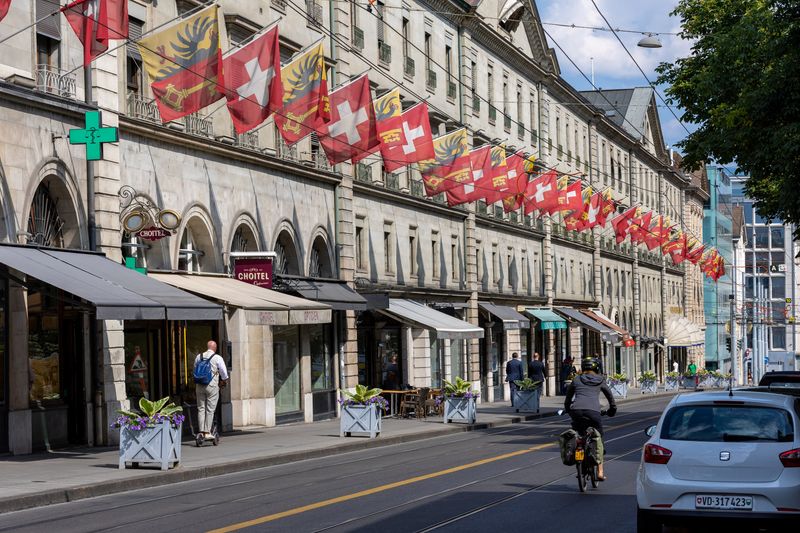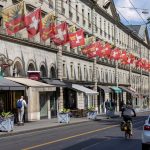Swiss consumer prices rose by 0.8% in September compared with the same month a year earlier, data from the Federal Statistics Office said, the weakest increase since July 2021.
Month-on-month prices fell by 0.3%, due to cheaper petrol, accommodation and holidays, the FSO said.
In response to weak inflation, the SNB last week trimmed interest rates to 1.0%, its third cut this year and indicated more reductions were on the way.
The central bank’s new chairman Martin Schlegel has prioritised price stability – keeping inflation within a band of 0-2% – and has said inflation risks were now tilted more towards the downside.
In his first public appearance since taking charge, Schlegel on Tuesday also said the SNB was not ruling out taking interest rates into negative territory.
The SNB declined to comment on Thursday about the latest inflation figures.
Markets gave an 82% probability for a 25 basis point cut by the SNB at its next meeting in December, and an 18% probability for a 50 basis point cut.
Karsten Junius, chief economist at J.Safra Sarasin, said inflation dynamics in Switzerland “remain alarmingly weak” with falling prices for imports while domestic inflation was driven mainly by rent increases.
“Today’s figures shows that interest rate cuts by the SNB remain necessary,” said Junius, who expects a 25 basis point in December and more to follow.
“A further cut in March is now all but certain, and the risk is the SNB may have to do more and lower rates in June next year as well,” Junius said.
GianLuigi Mandruzzato, an economist at EFG Bank, said low inflation increased the prospect of the SNB cutting interest rates by 50 basis points in December.

He still thought the SNB would cut rates by 25 basis points, although a 50 basis point cut could not be ruled out.
“However, the chances that the SNB policy rate will bottom at 0.50% in the first half of 2025 are clearly rising,” said Mandruzzato.
To read the full article, Click Here

